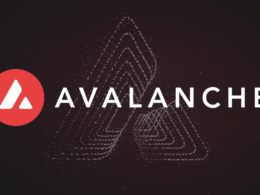Ethereum layer-2 project Mantle has announced the launch of its new liquid-staking protocol, Mantle LSP. The protocol allows users to deposit ETH and participate in network staking through validator nodes.
Addressing the Concentration of ETH Stakes
The concept of liquid staking, which enables users to free up their capital from staked assets, has gained popularity on Ethereum. However, this has resulted in a concentration of ETH stakes with major providers like Lido, Coinbase, and Binance. Mantle aims to address this issue by offering a wider range of solutions.
“The concentration of ETH staking is a result of network effect through a feedback loop of increasing name recognition and use case,” said Jordi Alexander, Chief Alchemist at Mantle. “By focusing on mETH’s adoption in LSDfi both in the Mantle ecosystem and beyond, and its capital efficiency in maintaining the highest sustainable yield, Mantle LSP intends to be a part of the solution by creating more options for users.”
Mantle’s Expansion and Treasury
The protocol originated from a proposal in the Mantle governance forum in July 2023 and has undergone an alpha phase in October. With the launch of Mantle LSP, users can stake ether and receive Mantle-staked ether (mETH) as a token representing their stake.
Since merging with BitDAO in May 2023, Mantle has accumulated one of the most significant community treasuries in the cryptocurrency space. According to DeepDAO, its treasury includes assets worth $470 million in ether and over $200 million in stablecoins.
Concerns over Centralization
Ethereum co-founder Vitalik Buterin has voiced concerns regarding the concentration of power among Ethereum’s liquid staking providers. Lido, a prominent liquid staking pool, currently controls over 32% of the staked ether on Ethereum. Buterin highlighted the need for more robust safety mechanisms and proposed exploring additional solutions to enhance the safety and decentralization of liquid staking.
Several prominent liquid staking providers have implemented or are in the process of implementing a self-limit rule to address concerns over the growing centralization of Ethereum staking. Rocket Pool, StakeWise, Stader Labs, Diva Staking, and Puffer Finance are some of the staking platforms that have committed to the self-limit rule.
However, Lido Finance has decided not to commit to the self-limit rule. Coinbase, the second-largest staking provider, holds only an 8.7% market share, according to data from Dune Analytics.
















